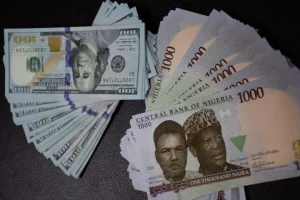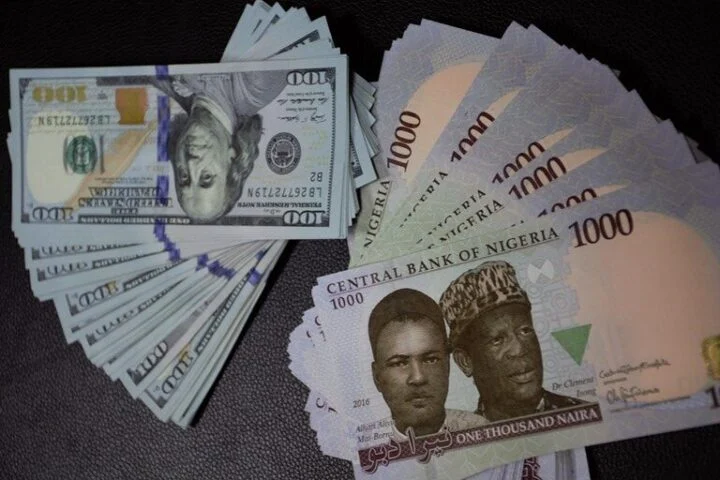As of today, from Aboki Forex data, the Nigerian Naira continues to face pressure in the parallel market, with black market exchange rates reflecting persistent demand for foreign currencies, particularly the US Dollar, British Pound, and Euro. Traders across major exchange hubs in Lagos and Abuja confirm a widening gap between official and street-level rates, raising ongoing concerns about currency volatility and import-driven inflation.
In the dollar segment, the Naira is being bought at ₦1600 and sold at ₦1608, signaling marginal weakness in its buying power compared to previous trading days. Market analysts attribute the softening of the Naira to increased demand for dollars by importers, business travelers, and school fee remittances.
The British Pound Sterling is also commanding a strong premium. Buyers today are exchanging at ₦2105, while sellers demand ₦2125, reflecting the pound’s enduring strength in the black market. The continued high demand for pounds is being fueled by foreign education expenses and real estate investments in the UK by Nigerian nationals.
Meanwhile, the Euro remains slightly less volatile but still elevated. The current black market rate for buying Euros stands at ₦1770, while the selling rate has climbed to ₦1795. The spread in euro transactions has widened as well, particularly among high-value bulk exchanges, signaling lower liquidity in euro cash holdings among traders.
Economic Implications
The disparity between black market rates and the Central Bank of Nigeria’s official window continues to distort pricing in key sectors. Small businesses that rely on imported goods are increasingly unable to access foreign currency through official channels, pushing them toward informal markets where rates remain unpredictable and generally unfavorable for the Naira.
Financial analysts warn that unless forex supply improves through oil earnings or foreign direct investment inflows, the pressure on the Naira could worsen, especially ahead of the next Central Bank monetary policy announcement.
Moreover, Nigeria’s inflationary environment, combined with sluggish economic growth and tightening global financial conditions, places the country in a delicate position. Currency watchers are also paying close attention to any policy adjustments or forex reforms that may emerge in the coming weeks, particularly around diaspora remittances and export proceeds repatriation.
Market Outlook
As things stand, the black market is functioning as the primary access point for many Nigerians and businesses needing foreign exchange. With current rates hovering well above ₦1600 to the dollar and over ₦2100 to the pound, the demand pressure appears far from easing. Traders expect minor fluctuations in the coming days, particularly if any policy pronouncements from the Central Bank influence forex liquidity.
New Daily Prime will continue to monitor exchange rate developments and provide timely updates as Nigeria navigates its complex currency challenges in a globally competitive economy.


